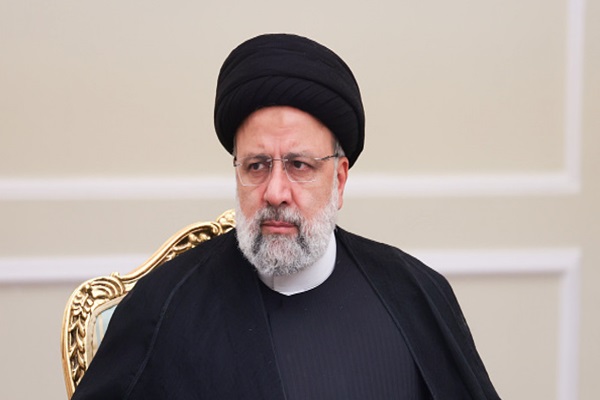- Five-day mourning declared
- Tinubu condoles with Iran
Ebrahim Raisi, Iran’s president and a top contender to succeed the nation’s supreme leader, was killed on Sunday in a helicopter crash. He was 63.
A conservative Shiite Muslim cleric who had a hand in some of the most brutal crackdowns on opponents of the Islamic Republic, Mr. Raisi was a protégé of Iran’s supreme leader, Ayatollah Ali Khamenei, and a devoted upholder of religious rule in the country.
Mr. Raisi’s presidency was shaped by two major events: the 2022 nationwide uprising, led by women and girls, demanding the end to the Islamic Republic’s rule and the government’s brutal crushing of that movement; and the current Middle East war with Israel, with which it had a long history of clandestine attacks.
Meanwhile, Iran’s Supreme leader Ayatollah Ali Khamenei has announced five days of mourning for President Ebrahim Raisi.
Khamenei, in an official statement on Monday, a day after the death of Raisi and other officials in the crash in East Azerbaijan province, said: “I announce five days of public mourning and offer my condolences to the dear people of Iran.”
As the president under Iran’s political system, Raisi did not set the country’s nuclear or regional policy. But he inherited a government that was steadily expanding its regional influence through a network of proxy militia groups and a nuclear program that was rapidly advancing to weapons-grade uranium enrichment levels following the United States’ exit from a nuclear deal.
Raisi endorsed and supported both of these policies and viewed them as essential for Iran to maintain its influence in the region and to exercise leverage over the West.
Nigeria’s President Bola Tinubu has extended his condolences to the government and people of the Islamic Republic of Iran over the passing of President Ebrahim Raisi; Iranian foreign minister, Hossein Amir-Abdollahian, and other officials in a helicopter crash.
In a statement by the President’s spokesman, Ajuri Ngelale, President Tinubu expressed profound grief over the disturbing tragedy, and describes President Raisi as a leader who was passionately committed to the development of Iran.
While commiserating with the bereaved families, President Tinubu prayed for the continuous peace, stability, and prosperity of the Iranian nation.
On behalf of the government and people of Nigeria, the President assures the Islamic Republic of Nigeria’s support and prayers in this moment of grief.
His death came as a yearslong shadow war became one of direct confrontation in the wake of Israel’s military assault on Gaza in retaliation for the Oct. 7 Hamas attacks on Israel.
Mr. Raisi was born in the northeastern city of Mashhad to a family of clerics, and he studied at the country’s famous seminary in Qum before participating as an 18-year-old in the 1979 Islamic revolution, which deposed Iran’s shah. Just two years later, Mr. Raisi became a judge in the newly created Islamic Republic, beginning a steady ascent to the top of Iranian politics.
Like Mr. Khamenei and his predecessor, Ayatollah Ruhollah Khomeini, the founder of the Islamic revolution, Mr. Raisi donned a cleric’s black turban, one that is reserved for “sayyids,” or people who trace their lineage back to the Prophet Muhammad.
The issue of succession in Iran has become more pressing because Mr. Khamenei is 85 and frail. The selection of the next supreme leader is an opaque process of political rivalries and jockeying. Under the Constitution, an elected body of clerics called the Assembly of Experts picks the supreme leader.
Mr. Raisi was viewed as one of the top contenders for that role and was favored by the hard-line faction, as was Ayatollah Khamenei’s son Mojtaba, an influential cleric who helps run his father’s office. Mr. Raisi’s death essentially paves the path for the younger Mr. Khamenei to succeed his father.
Political analysts described Mr. Raisi as a loyal enforcer of Mr. Khamenei’s policies and a facilitator of the growing power of the Islamic Revolutionary Guard Corps in Iran’s politics and economy.
“He was not someone exuding charisma. His speeches were not motivating people to the streets. He was executing policy,” said Sanam Vakil, director of the Middle East and North Africa program at Chatham House. “Above all, he was a regime insider. He was an ideologue who worked within the system and through the system.”
Mr. Raisi’s supporters, including conservative pundits on state media, praised him for reimposing strict religious and social rules, being intolerant of dissent and turning Iran’s policies away from the West toward more engagement with Russia and China.


